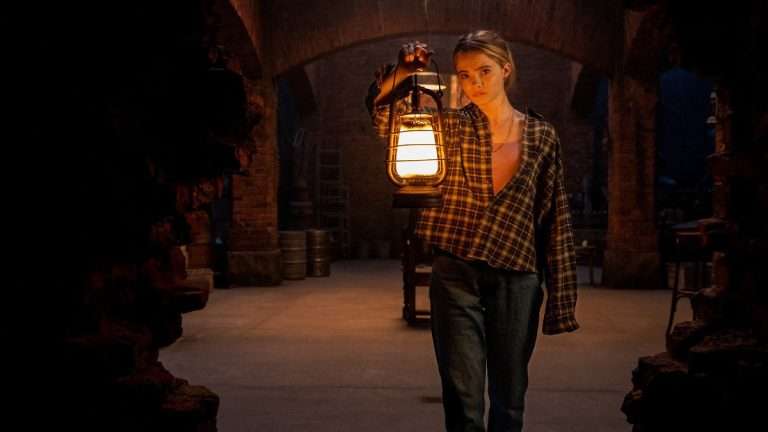Memoria (2021) Movie Ending Explained & Themes Analyzed: The first thought that occurred to me (now that I feel less disoriented after having watched the film a day ago) is the first line of one of my favourite novels, One Hundred Years of Solitude by Gabriel Garcia Marquez. He wrote, “Many years later, as he faced the firing squad, Colonel Aureliano Buendía was to remember that distant afternoon when his father took him to discover ice.” In this sentence, he wove together the past and the present that would later form the foundation of the narrative in the novel, much like the sound that makes itself heard to Jessica (played by Tilda Swinton) and the audience within the first ten minutes of the film.
Memoria (2021), directed by Apichatpong Weerasethakul, is a Spanish-English film that doubles up as a masterclass in sensory explorations across the overlapping realms of past and present realities in time. Much in the tradition of Weerasethakul’s filmography, the audience is guided through the narrative slowly and steadily, building up a unique experience for each of the viewers. It was awarded the Jury Prize at the 74th Cannes Film Festival, where it also premiered.
Tilda Swinton is a vision of perfection in every role she steps her foot into. In one of the scenes, she and Hernan (played by Juan Pablo Urrego), a sound engineer, are sitting in his studio, trying to recreate the sound that Swinton’s character has been hearing. The camera poises itself at a little distance behind their chairs, and we see how every time the sound – a bang? an earthy explosion? a sonic boom? – is played, she carefully and differently reacts to them.
Her body language is carefully observant and reciprocates to the things around her even if her facial expressions gather moss. Weerasethakul’s film transforms itself into an intimate experience by its end, probing us to think about the nature of human curiosity and their creations, from the poetic to the political. It, like any Marquez story, seems to hinge on a magical realist element to broach these themes. How? Don’t worry. Memoria (2021) might not be everyone’s cup of tea at the first go, but allow us to take you through its many themes and narrative in detail.
I have particularly chosen to be vague about a few minute things in this explanation below which, I believe, is in tandem with what the movie urges us to do – to listen, feel and understand it using our own senses. SPOILERS AHEAD!
Memoria Plot Summary and Movie Synopsis:
At the start of the film, we are in Jessica’s bedroom. It is late at night, and everything is seamlessly quiet when we suddenly hear a sound. It is like an explosion in the distance (at least that is my interpretation of the sound at the first go). The sound wakes Jessica up. She tries to look for the source of this sound in her house but finds nothing that could have caused it. Outside, the cars in the parking lot seem to be acting up – headlights flashing and creating a din – as if the cars are reacting to the sound that Jessica has heard.
In the next scene, Jessica is at the bedside of her sister (played by Agnes Brekke) as she drifts in and out of her sleep. She seems to be talking about a dog and is concerned about the cruelty meted out to it by human beings. Later, Jessica is at a traffic crossing when she hears the sound again. She sees a man running across the street as if he has been able to hear this sound, in fear. Every pedestrian pauses to look at his flight, making Jessica wonder if she was not alone in her experience.
Soon afterwards, she visits a sound engineer, Herman at a music studio. Jessica tells him about the nature of the sound while he tries to recreate it. It is a speculative, trial-and-error process, mechanical to tell the least, but it still does not answer what could have caused such a sound. In the next scene again, Jessica is back in the hospital room and peeping out through the closed curtains. The cars in the parking below seem to be acting up again, hinting that she may have heard the sound some time ago.
We get a sneak peek into her life in Bogota – befriending a woman who works at the morgue in the hospital, studying orchids at the library, visiting an art exhibition/museum, walking around the city, and resting in a public place as she wishes. It is now that she hears the sound again. In the next scene, Jessica is with the woman she has recently befriended and learns about the skeletal remains of a young girl that were recently excavated.
They appear to be 6000 years old, and a hole appears to have been drilled in her head as part of a ritual to cast out the evil spirits. She meets with Hernan again. This time in a park, and the audio he has brought along of his interpretation of the sound that she has been hearing appears to have pleased her. Together, they look for a cooler for her orchid. There is a hint that Hernan might be interested in Jessica romantically.
Jessica attends dinner with her sister and her husband. At dinner, she hears the sound thrice and is confident that she is the only one hearing this sound. She also seems to not be at par with the knowledge about a certain person in conversation. Later, she visits Hernan’s studio again only to realise that no one by the name of Hernan works, or has ever worked, there.
She fleets through musical performance and drives herself back to the town. Eating with her new friend on a public bench, she confesses that she seems to be going crazy, recites a new poem she has composed about sleepless nights and performs a magic trick. She visits a doctor and suggests being prescribed a Xanxax, but the doctor says that an addictive drug of that nature will make her lose empathy and miss out on the beauty of the world around her.
Jessica flees the town for respite, but the sound travels with her. She comes across an old man (also known as Hernan (played by Elkin Diaz) along a flowing stream, one who claims to know all about her, himself, and all past and present lives. Their conversation is central to the remaining portion of the film and helps unravel the mysteries of time and space, past and present, giving Jessica an understanding of the sound she has been hearing for the past few days now.
Who is Hernan in Memoria?
Hernan is a sound engineer in a music studio at Bogata, Columbia, who helps Jessica try to recreate the sound she is so deeply plagued and moved by. Jessica’s interactions with him tell us that he has come quite close to faithfully reproducing the sound that Jessica sought. They also seem to be warming up to each other, until he hints at a romantic association when he expresses his willingness to buy an orchid cooler with her for her orchids. Suddenly, he disappears into thin air as if he never existed in human flesh, almost making us question if Jessica was only imagining all of it or slowly starting to lose out on her own sense of time and space.
Later in the film, she meets an old man along a mountain stream who also introduces himself as Hernan. He seems to be a reincarnation of the Hernan we have previously seen, just an older version now and possessing all the knowledge (recollection, you may call it) of his own lives – past and present.
What is the meaning of the word Memoria?
Memoria is a Latin word and one of the aspects of speech in classical Western rhetoric. By memoria, we can refer to the act of recalling something that, in turn, has far-surpassing effects on forming arguments. Some also seem to refer to memoria as a state of the human mind in between sleep and wakefulness.
It is a state of limbo where memories of the past and the present of the self and the state come together. It is a poetic plane for those who can imagine it in this film, given a shape by the beautiful and intense sound design. I sometimes thought that we are living inside Jessica’s mind. For you, it might be a different experience.
What is the sound in Memoria?
The sound is the source of all curiousness in the film Memoria (2021). Is it a loud bang, or is it a sonic boom? It is difficult to pin the sound down. Let us tell you a curious history of the sound first. The director, Weerasethakul, has confessed to suffering from a rare parasomnia, the exploding head syndrome. It was apparently this that helped him conceive the idea of this film.
When Jessica is trying to explain the sound to Hernan, the audience is equally engaged in finding a mind-boggling description of the same from the one time that both Jessica and we have heard at the start of the film. She calls it earthier, and rounder, and goes on to describe it as a “ball of concrete hitting a metal wall surrounded by seawater.”
Yet, there’s only so far that words can go in encapsulating a sound. The ending of the film gives us a source of the sound – an alien spaceship in the air that, in its moment of passage, produces a hole/portal produced by this sound.
More philosophically, it is a part of Hernan’s memory that Jessica can channel. However, it is clear by then that the sound is a low-rumbling, mysterious environmental echo of the land and not an individual medical cause of concern. In the course of the film, the sound becomes a magic-realist element central to its narrative.
Memoria Movie Themes Explained:
The Nature of Art: Creation v/s Imagination
Ever since Jessica heard that sound on a fateful night, she hasn’t had a wink of sleep. We find her constantly trying to understand the sound better. To that extent, she goes to a sound engineer and tries to reproduce it. Along with her, the audience participates in the curious act of recreating the sound – more bass, earthier, shaped round, etc. Yet, we can only get so close to creating it as our individual, and therefore unreliable, empirical perceptions allow.
It brought back to me the first lessons in understanding the nature of art and imagination as stated by Coleridge, a Romantic poet from early 19th century England, during my undergraduate years. The film abounds in sonic experiences, ones that make the film rich with sounds of various kinds – flowing streams, honking cars, street performances, etc.
Through it all, however, we seem to only and only be searching for that one sound we hear at the start of the film. The film willingly divulges this difference between creation and imagination when Jessica tells Hernan that she likes his interpretation of the sound, meaning it isn’t the exact sound but somewhere close enough. The gap in between – the lost bit in translation – will never be reclaimed.
Curiosity: Poetic and Political
If there’s something that stands out in this film, it is the nature of human curiosity. Right from the moment Jessica wakes up to the sound to the moment when she follows the older version of Hernan into his hut, Jessica is curious. She is curious enough to want to recreate the sound for herself or go for a doctor’s check-up to find out if anything is wrong with her.
Not only Jessica but everyone around her seems to be curious cats of their own kinds – her sister mentions wanting to know about the rituals of the indigenous tribes, and her new friend informs her about her upcoming departure to the site from where the 6000-years old bones of a young girl have been excavated. There is also an elaborate scene in the middle of the film when we witness the excavation party hard at work, certainly showing signs of curiosity as they dig further into the earth.
While human curiosity has been the reason for civilizations of growth and prosperity, there is a hint that we might have probed too far into nature and for too long now. The constant effort that we put into generating more and more knowledge about the past may be better discarded to let some things in nature be. If you think this is a spiritual, almost pagan understanding of curiosity, then I cannot deny it.
It must be said here that it is the same nature of human curiosity that has driven nations to wars, consequently leading to colonization and more struggles to break away from it. The political nature of curiosity is what has built empires. The muffled nature of this political curiosity is evident in Jessica’s sister’s speech as she talks about investigating the indigenous tribe that lives far inside the Amazon and chooses to keep all outsiders at bay with their special powers.
Considering the long-standing political turmoil and after-effects of colonization suffered by the indigenous tribes in South America, the film can be read as a text on decolonization, where the sound is the amalgamation of the injustices meted out to the people coming from deep within the earth.
Memoria Movie Ending Explained:
When Jessica thinks that she is starting to lose her grasp on reality, she travels to a village close to the mountains. She chances upon a man, sitting beside a river and cleaning the fish’s scales, who tells her that he has a remembrance of everything. He goes by the name Hernan and says that he remembers space, can speak in monkey language, and knows about his birth.
Jessica suggests he takes her pills, but he denies them, saying that they won’t help her. Jessica confesses that she heard a voice (a sound of a sort) that she wants to hear more of. They start talking about dreams when they sleep, and Hernan says that their people don’t dream in their sleep. Jessica asks to be shown how that happens, and Hernan lies down on the grass, and for a few brief minutes all is quiet – we assume that he is demonstrating the act of sleeping but dreamlessly to Jessica.
Back inside Hernan’s house, Jessica is curiously engaged in exploring the rooms. Both of them share a couple of drinks, as Jessica goes on to recollect a childhood memory in detail. However, Hernan announces that she can read his memories. The explanation comes soon afterwards. As they sit facing each other at the dining table, Hernan tells her that he is like a hard disc – a storage device – while she is like an antenna, a network or channel for the memories of the past and the present to intersect.
Jessica begins to question her existence in time, and Hernan says that she doesn’t exist on this plane of existence in time; he does. Hernan asks her why she was crying since the recollections she just had were not a part of her memory. Jessica questions him, saying whether the sound she hears is also a part of his memory and reaches out to hold his hand. The answer is – it is.
Hernan tells her that the sound belongs to the time before it existed. As they remain seated at the table, they can hear voices and sounds in the background that foreshadow the history of colonisation in the country and the history of the people of the land. The memory of it all ends with a bang, the same sound that she has been hearing all along. Jessica gets up and stands near the window, waiting to hear the sound again. This time, there are bangs of all intensities in succession. Like land mines? Like war? Outside, within the foliage of trees, an alien spaceship appears, and the sound can be a direct result of the halo it leaves behind. Then, all sounds cease.
Over the radio, we hear reports of an earthquake at a nearby volcano. We are also filled in with the details of the progress of the excavation that we got a wind of earlier in the film. The film ends in complete and utter silence as harrowing rain clouds gather in the sky.
What does the ending of the movie Memoria mean? Well, it is up to your individual experiences. To me, it was a warning by the land that has long since been hushed by colonial control bearing the signs of fury. Digging up the past in this land is opening up this chasm of resentment that goes long back in history. The land remembers how its people suffered. The land must keep trespassers at bay to preserve its identity.


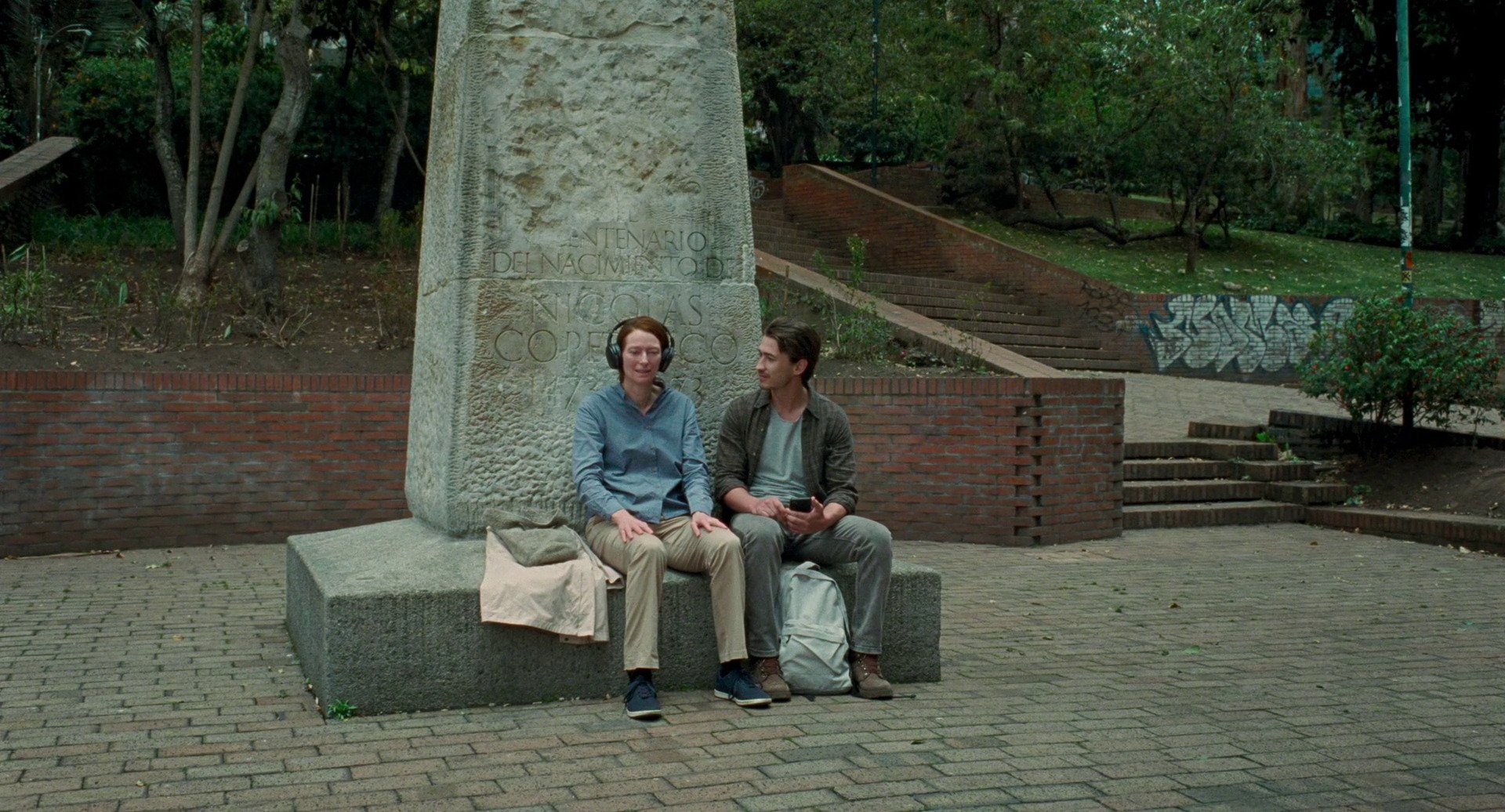
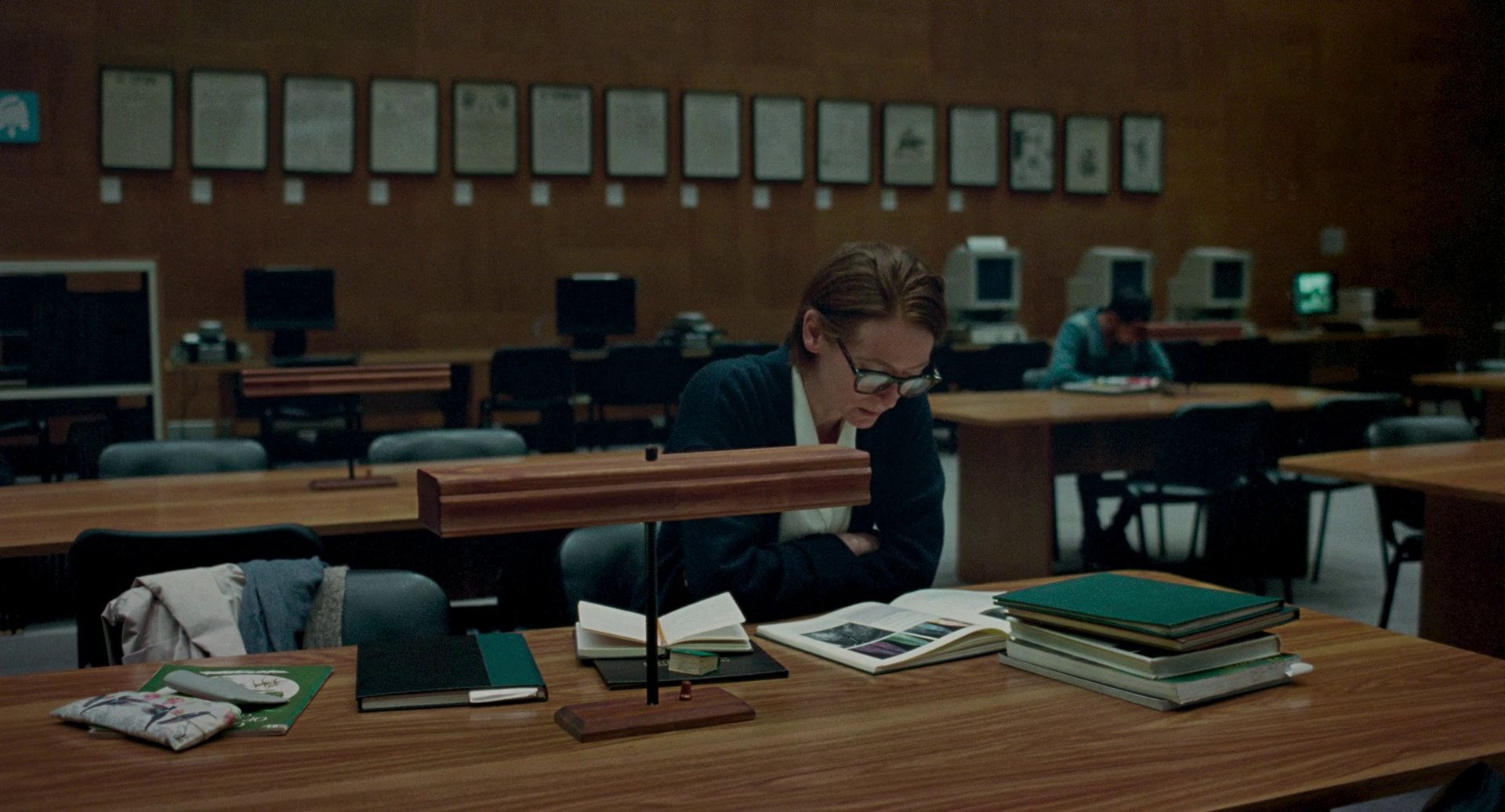




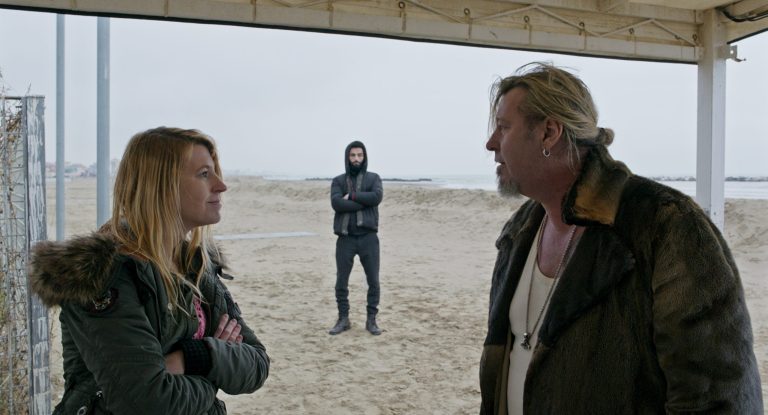
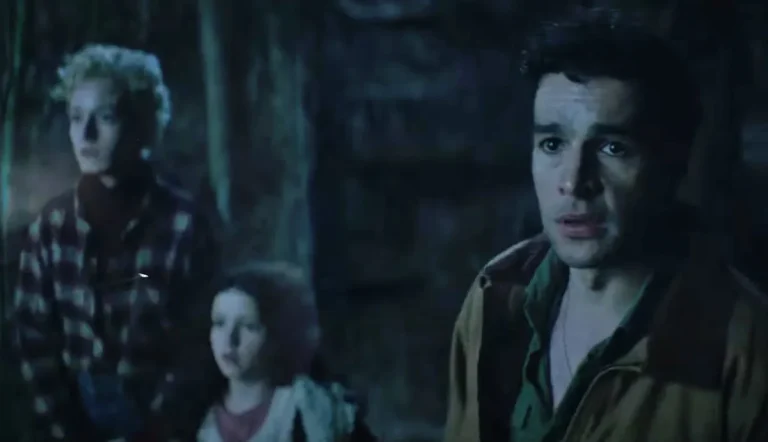

![The Lost City [2022] Review – Sandra Bullock & Channing Tatum cannot save this stale, humorless romp](https://79468c92.delivery.rocketcdn.me/wp-content/uploads/2022/04/The-Lost-City-Movie-Review-1-768x384.webp)
